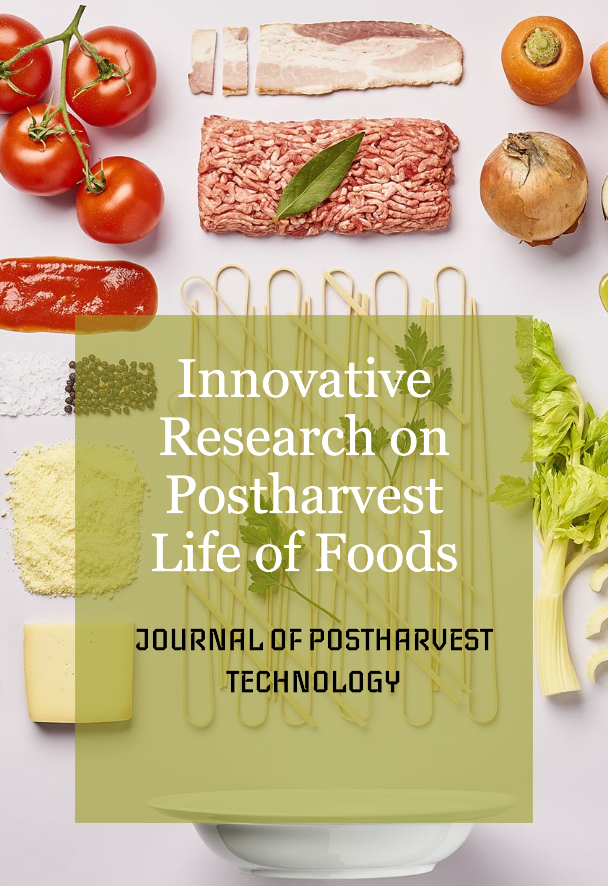Postharvest Losses, Current Issues and Demand for Postharvest Technologies for Loss Management in the Main Banana Supply Chains in Sri Lanka
Keywords:
Banana, Packaging methods Post harvest loss Supply, chainAbstract
Banana is the main fruit crop cultivated in Sri Lanka. It’s a commercial crop giving high income to the cultivators. It is distributed from farm gate to consumers through the supply chain which involves farmer, collector, whole seller, retailer and transporter and with a high post harvest loss. Therefore, this study was conducted to assess the present status of the banana supply chain. A total sample of 100 including farmers, collectors, whole sellers, transporters and retailers were randomly selected from two growing areas and a high banana retailing municipal council areas. Data were gathered through a survey using a questionnaire, key informant interviews, direct observations and secondary sources. The study revealed that the banana supply chain follows the conventional chain with some deviations. All whole sellers were acting as bulk transporters. Majority of stakeholders preferred and transported bananas as whole bunches bulk packed in vehicles. Preference in selling in retail outlets were also as intact bunches. The commonly used transportation vehicles were two wheel tractors, open trucks, and lorries. The total postharvest loss of banana was 20 % from farm gate to retailer. A suitable bulk packing method should be introduced to reduce the post harvest loss of banana.
References
Ekanayake, S. and Bandara, L. 2002. Development of banana leather, Annals
of the Sri Lanka Department of
Agriculture, 4: 353-358.
Fernando,M.D. 2005. Postharvest Management of Fruits and Vegetables
in the Asia-Pacific Region. In: Report
of the Seminar on Challenges in
Postharvest Management of
Agricultural/ Horticultural Products,
–28 July, 2005, Islamic Republic of
Iran. Published by Asian Productivity
Organization, Hirakawacho, Chiyoda
ku, Tokyo, Japan. pp. 264-275.
Ferris, S., Waiwright, H. and Thompson, A.K. 1998. Susceptibility of plantains
(AAB) to mechanical damage, Fruits,
:101-107.
Hirimburegama, W.K., Dias, W.K.G. and Hirimburegama, K. 2004 Banana
improvement through gamma
irradiation and testing for banana bract
mosaic virus in Sri Lanka. FAO
corporate document repository,
Available at
http://www.fao.org/docrep/007/ae216e/
ae216e09.htm#TopOfPage.
Ilyas,M.B., Ghazanfar,M.U., Khan, M.A., Khan, C,A. and Bhatti, MA.R. 2007
post harvest losses in apple and banana
during transport and storage, Pakistan
Journal of Agriculture Science,
(3):534-539.
Kudagamage, C., Chandrasiri, G.W.J. and Razmy, A.M.Z. 2002. Analysis of
long-term trends in banana sector of
Sri Lanka, Annals of the Sri Lanka
Department of Agriculture, 4, 21-32.
Laistrooglai, A., Mosikarat, P. and Wigran, M., 2000. Packaging design with
natural materials: A study for
conservation, Silpakorn University
Research and Development Institute,
Thailand.7-26.
Mashau M.E., Moyane J.N. and Jideani A. 2012. Assessment of postharvest losses of fruits at Tshakhuma fruit market in Limpopo province, South Africa. African Journal of Agricultural Research: 7(29): 4145-4150.
Sarananda K.H. and Wijerathnam R.S.W. 1994. Controlled atmosphere storage of ‘Embul’ banana, Tropical Agriculture Research, 6:17-22.
Sarananda,K.H. 2000. Country paper - Sri Lanka, Report of the APO Seminar on Appropriate Postharvest Technologies for Horticultural Crops in Asia.5-9 July, 1999, Bangkok, Thailand. pp. 230-236.
Swarnasiri, D.P.C. 2004. Postharvest Management of Fruits and Vegetables in the Asia-Pacific Region. In: Report of the Seminar on Reduction of Postharvest Losses of Fruit and Vegetables, 5–11, October, 2004, India. Published by Asian Productivity Organization, Hirakawacho, Chiyoda ku, Tokyo, Japan. pp. 253-263.
Wanjari, V. and Ladaniya, M.S., 2004. Marketing of banana in selected districts of India, Tropical Agriculture Research and Extension, 7: 127-133.
Wasala W.M.C.B., Dharmasena D.A.N., Dissanayake, T.M.R. and Thilakarathne, B.M.K.S. 2012. Physical characteristics and mechanical properties three commercially grown banana cultivars in Sri Lanka, Tropical Agricultural Research, 24(1):42-53.




